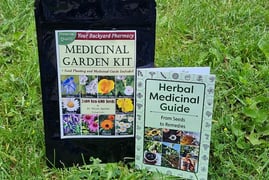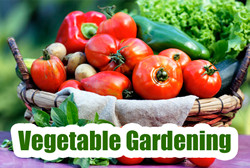Heirloom, Organic and Non GMO seeds and there importance.
A look at what are Heirloom, Organic and Non-GMO seeds are. Why are they important for the health of you, your family, your garden and the environment.
3/7/20243 min read


Heirloom, organic, and non-GMO seeds are all different types of seeds that have specific characteristics and production methods. Understanding these differences is crucial for anyone interested in gardening, as it can affect the quality of the produce and the sustainability of your garden.
Heirloom Seeds:
Heirloom seeds are seeds that have been passed down through generations of gardeners. They are open-pollinated, meaning they are pollinated naturally by wind, insects, or birds, rather than through human intervention.
These seeds often have historical significance and come from plants that have been grown for their desirable traits, such as taste, color, or adaptability to specific climates.
Importance: Heirloom seeds help preserve genetic diversity in plants and maintain unique varieties that may otherwise be lost. Using heirloom seeds can contribute to the conservation of rare or endangered plant species.
Organic Seeds:
Organic seeds are seeds that come from plants that have been grown without the use of synthetic fertilizers, pesticides, or genetically modified organisms (GMOs).
These seeds are produced in accordance with organic farming standards, which prioritize environmental sustainability, biodiversity, and soil health.
Importance: Using organic seeds promotes environmentally-friendly gardening practices and ensures that your garden is free from harmful chemicals. Organic gardening helps maintain soil fertility and supports beneficial insects and wildlife.
Non-GMO Seeds:
Non-GMO seeds are seeds that have not been genetically modified using biotechnology techniques. They are natural varieties that have not been altered at the genetic level.
Non-GMO seeds can still be conventionally produced, meaning they may have been grown using synthetic chemicals, but they do not contain genetically modified traits.
Importance: Non-GMO seeds offer an alternative to genetically modified crops and allow gardeners to avoid potential health and environmental risks associated with GMOs. They also support consumer choice and transparency in the food system.
Benefits of Using Heirloom, Organic, and Non-GMO Seeds for Your Garden:
Better Taste and Nutrition: Heirloom varieties often have superior flavor and nutritional content compared to mass-produced hybrids. Organic and non-GMO seeds can produce crops that are free from chemical residues, offering healthier and tastier produce.
Environmental Sustainability: By choosing heirloom, organic, and non-GMO seeds, you support sustainable agricultural practices that prioritize soil health, biodiversity, and ecological balance.
Seed Sovereignty: Using non-GMO and heirloom seeds helps preserve seed sovereignty, allowing gardeners to save seeds from their crops and maintain control over their food supply without reliance on seed companies.
Resilience and Adaptability: Heirloom seeds often have natural resistance to pests and diseases and are well-adapted to local growing conditions. This resilience can reduce the need for chemical inputs and ensure consistent yields in varying environmental conditions.
Differences Compared to Hybrid and Overproduced Seeds:
Hybrid Seeds: Hybrid seeds are produced by cross-pollinating two different varieties to create offspring with specific traits, such as disease resistance or uniformity. While hybrids can offer certain advantages, such as increased yield or uniformity, they often lack the genetic diversity and flavor of heirloom varieties.
Overproduced Seeds: Overproduced seeds refer to seeds produced through intensive agricultural practices aimed at maximizing yield and uniformity, often at the expense of flavor, nutrition, and environmental sustainability. These seeds are typically associated with industrial agriculture and may rely heavily on synthetic inputs like fertilizers and pesticides.
Why Hybrid and Overproduced Seeds Aren't Good for Your Garden:
Loss of Genetic Diversity: Hybrid and overproduced seeds often prioritize specific traits at the expense of genetic diversity, which can make crops more vulnerable to pests, diseases, and environmental changes.
Chemical Dependency: Overproduced seeds are often grown with the heavy use of synthetic fertilizers, pesticides, and herbicides, leading to environmental pollution, soil degradation, and health risks for farmers and consumers.
Taste and Nutrition: Hybrid and overproduced crops may prioritize yield and appearance over flavor and nutrition, resulting in produce that lacks taste and essential nutrients.




